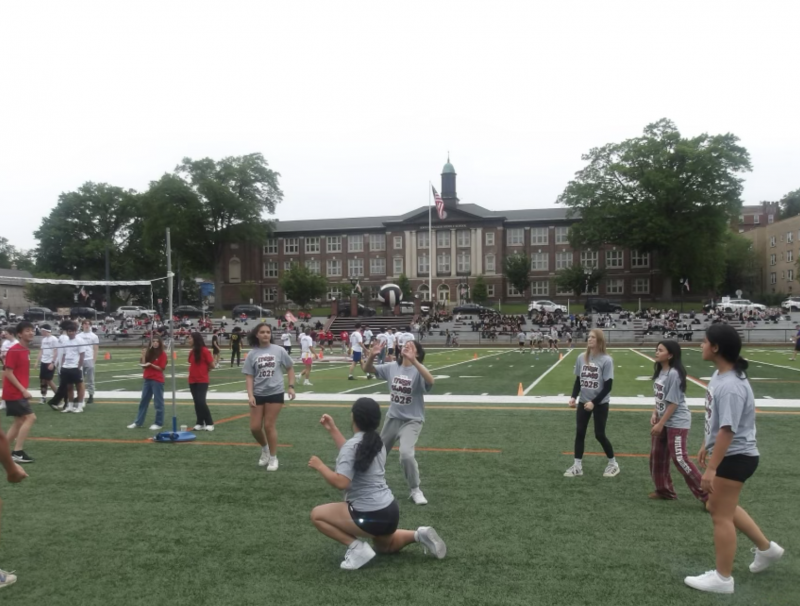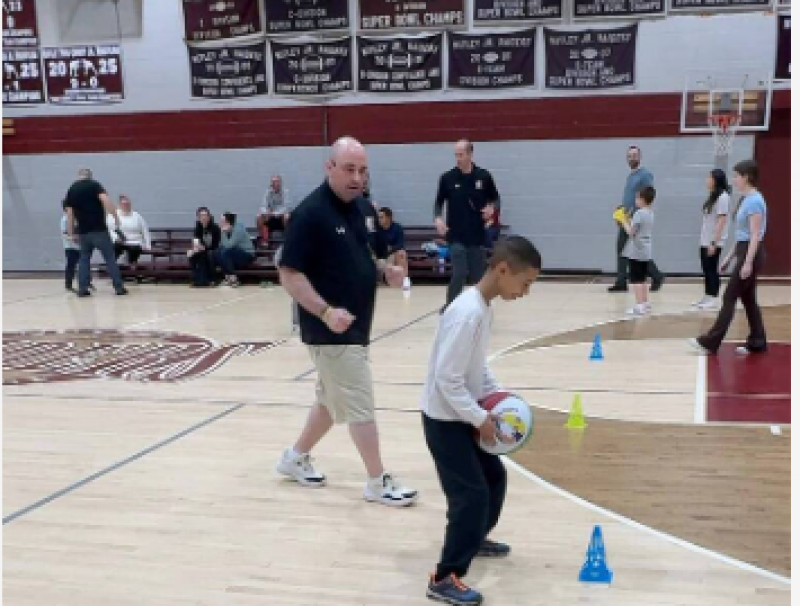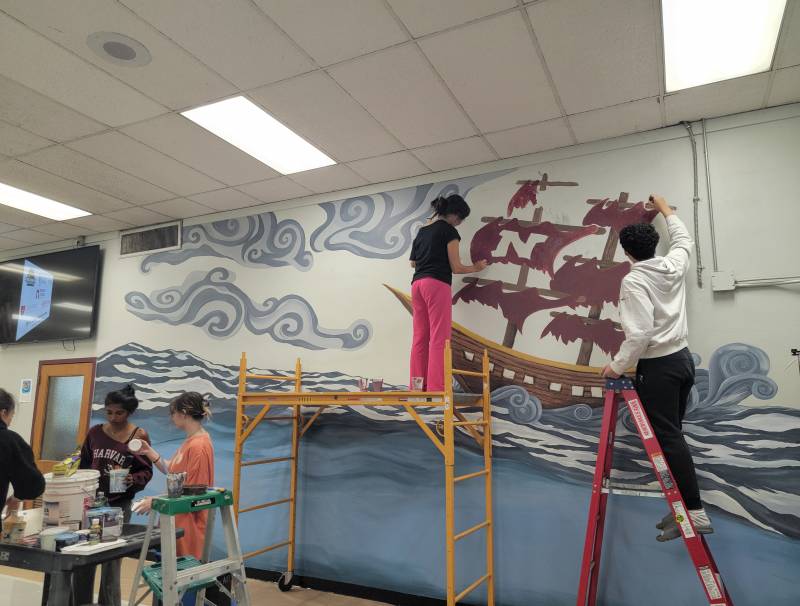RULER Promotes a Happier School Environment
At Nutley High School, there’s a program called RULER that’s helping students create a better understanding of their emotions. The goal of RULER is to teach emotional intelligence and the monthly lessons are designed to encourage students to think about their emotions as they go about their day.
The program involves the entire school community to create a more supportive and understanding school environment. But, while many people see the benefits of RULER, there are also questions about what’s working well, what could be improved, and how the program is really affecting the school.
What is RULER and What Does it Teach?
RULER stands for Recognizing, Understanding, Labeling, Expressing, and Regulating emotions. The program is designed to teach students how to manage their emotions in healthy ways and build better connections with their own emotions; it’s also to help students form a better understanding of others and their emotions, too.
When actively engaging in the program, students should be more able to notice how they feel and how others feel; this should help them to create an understanding of why they feel this way and what might happen because of those feelings.
The next step of understanding those feelings is being able to give a name to the feeling, such as happy, angry, sad, or tired. Then when continuing in the process of RULER the next step for students is to be able to express their feelings with attention to how it will be received by others.
Lastly, when going through their school day students should be able to find better ways to control their emotions so they are able to stay calm and make good choices, although emotions may be difficult to control.
The lessons help students not only in school but in everyday life, too. For example, learning how to manage emotions can improve a student’s decision-making in many aspects of their life.
Coordinator of School Counseling Meredith Gerckens explains that, “RULER is an approach to social and emotional learning that teaches the skills of emotional intelligence and includes everyone in the school community.”
This course is able to not only help students keep their emotions from affecting others in negative ways, but is also able to give students the tools they need to better understand if they see others having struggles with their emotions.
How Does RULER Impact the School Environment?
RULER is not just for students; it also involves teachers and other school staff. The goal is to create a shared grasp on the language around emotions that everyone can use. This common language makes the school environment more supportive and overall connected as a whole.
Freshman Gianna Albanese sees the positive impact that the program has had on the school community. “RULER often involves everyone in the school (community), including students, teachers, and other staff members. It helps create a better school environment where people understand each other better,” she said.
When students and teachers are able to understand and manage their emotions better, they get along better with each other. This leads to fewer conflicts and more positive interactions.
Gherkins shares that RULER helps improve the school environment by promoting positive relationships and reducing problem behaviors. She believes that learning emotional intelligence improves not just academic performance but also overall well-being. “We know that understanding our emotions leads to better decision-making and higher-quality relationships, which are key for success in school and in life,” she said.
After learning these skills, everyone is encouraged to use them outside of school too, to help all students and teachers interact with others in a healthy way.
Are the RULER Lessons Engaging?
RULER lessons are designed to be engaging. They often include many activities, discussions, and real-life scenarios that help students connect with the material.
By involving students in the hands-on experiences and encouraging them to share their thoughts and feelings, the lessons keep students interested and actively participating. This makes the learning process both enjoyable and effective.
According to Albanese, the lessons are interactive and hands-on. “The teaching style in RULER does help us create a better understanding of the emotions. We do a lot of the same activities, group discussions, and reflections then apply what we learn to real-life situations.”
These continuous lessons can help all students feel more comfortable and connected to the learning process. Meeting with the same group every month can also help everyone feel more comfortable in actively participating.
However, Sophomore Chris Mabry thinks that some of the topics can feel repetitive. “We revisit some topics throughout the year, which helps us remember the skills, but some students feel like the lessons are the same thing over and over again,” he explains.
Albanese, too, thinks the repetition doesn’t enhance the program. “Sometimes, the lessons feel like the same things are being taught over and over again,” she said.
This repetition might be useful for reinforcing important ideas and helping students improve their knowledge on all the topics RULER covers, but it can also make the lessons feel less exciting for some students.
How Often Should RULER Lessons Take Place?
Currently, RULER lessons happen once a month, during advisory-style meetings where students gather to learn together, going over new skills to help them with their understanding of their own emotions and of others.
Gerkens explains the idea that having the lessons more frequently could help students practice their emotional intelligence more regularly. However, there’s also a long-term goal to integrate RULER into other subjects. “Right now, we have RULER lessons once a month; but, eventually, we’d like to see these lessons incorporated into each academic class,” she said. “This would help students apply emotional intelligence every day in every subject, not just during one lesson a month.”
Many students and other staff members agree with the concept of being able to meet multiple times a month. Incorporating the lessons more into each academic class can help students feel more comfortable around the school and with their peers overall.
Mabry thinks more frequent lessons would make them more meaningful. “It would be helpful if we had RULER lessons more often. Having them once a month doesn’t give us enough time to practice the skills we’re learning. If we had them more often, we could get more out of the program.”
What Could Be Improved About RULER?
While the RULER program is generally seen as a positive addition to the school, there’s always room for improvement. Some students believe the program could be more engaging if there was a greater variety in the lessons.
The lessons can feel repetitive because they're all about practicing emotional skills over and over. Although this repetition can be annoying, it helps the students get a really good understanding about managing their emotions, kind of like how practicing a sport makes you better at it.
Another idea students have come up with to make Ruler more engaging for everyone includes creating new topics to cover to allow for a better understanding of emotions.
Mabry said, “Maybe adding new topics or more advanced lessons would make it more interesting as we move through high school.”
Additionally, while some students appreciate the once-a-month lessons, others feel that more frequent lessons would help reinforce the skills.
Freshman Susuni Soho said, “If we had RULER lessons more often, we could practice the skills more and get better at regulating our emotions.”
It’s also worth noting that some students find the lessons to be a bit basic, especially for upperclassmen who have been learning the same concepts for two consecutive school years.
Gerkens welcomes suggestions about the program from the school community. “We’re always open to feedback from students about how to improve the lessons and make them more meaningful.”
The Bottom Line
In general, the RULER program at Nutley High School is making a positive impact on students, teachers, and the school as a whole. It’s helping students understand their emotions, build better relationships, and create a more supportive school environment.
While some students feel that the lessons could be more engaging or more frequent, the program’s focus on emotional intelligence has made a positive difference in the school’s environment.
As the program continues to grow, there may be opportunities to improve and refine the lessons based on feedback from students and teachers. For now, however, it’s clear that RULER is helping Nutley High School create a healthier and more understanding environment for everyone.









